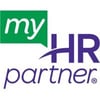PEOs, short for professional employer organizations, are often confused with HR firms. Both provide outsourced HR services. In addition to human resources functions, though, PEOs can also lower your health insurance and insurance premiums. Which makes PEOs the obvious choice for small- and mid-sized businesses, right?
Not necessarily.
There are key differences between PEOs and outsourced HR firms – differences with seismic implications for businesses’ expenses, bottom lines, structure, culture, and future overall. Here are five differences every business needs to know before outsourcing:
1. When you contract with a PEO, you’re no longer the sole employer of your people
This is arguably the most misunderstood and dramatic difference between a PEO and fully-managed HR. Although you and your leadership team continue to direct your company’s day-to-day and larger direction, your PEO, by design, takes ownership of your employees in setup called co-employment. The PEO becomes the employer of record (EoR), transferring your employees to their payroll then leasing them back to you. Interestingly, though, if your PEO isn’t certified by the IRS and fails to pay taxes on your behalf, you – the business – are held responsible (ADP).
The logic behind transferring a business’s employees to PEO payroll is that PEOs’ larger size grant small- and mid-sized businesses access to economies of scale that can spell savings for you (and for all of their business clients) as they negotiate health, insurance, and other employee benefits on your behalf.
A tradeoff, of course, is that employees no longer work for your small- or mid-sized business, but rather for a large PEO – which has implications for everything from morale to the accessibility of employee support and related communication. PEOs are often quite large, with a reputation for inflexibility and one-size-fits-all processes – not just in the HR services they offer you, but in how they support your people, now on their payroll.
2. There are things PEOs won't do
While they position themselves as full-service HR, most PEOs don’t offer the full suite of HR functions and strategy characteristic of truly fully-service outsourced human resources. Entering payroll hours, for example, is something any fully-managed HR provider will handle; however, it’s often punted back to small and mid-sized businesses by PEOs. Hiring support, performance management, and other administrative tasks are also case-by-case from one PEO to the next. This can come as a shock to businesses who opt for a PEO in the quest for an all-in-one solution, only to find out they still need to commit resources to some aspects of HR.
3. Fee structures and flexibility
PEOs charge their business clients a percentage of each employee’s salary. It’s a pricing structure that begs examination. If a company has some or many highly compensated employees, total PEO fees are higher (the irony being that higher-level employees typically require less HR support). This pricing structure also means a PEO makes more money when you originate new roles, or when employee pay rates increase (pay an employee more, you have to pay your PEO more).
Most fully outsourced human resources providers, meanwhile, bill clients according to the level and degree of services they need and use. Fully-outsourced HR has no financial stake in your people; they don’t make money when you hire. Put simply, businesses can pick and choose the responsibilities of their HRO, and scale up and down as needed.
4. With PEOs, your premiums are directly impacted by other businesses AND hidden
Theoretically, economy of scale is a benefit of working with a PEO because your business becomes part of a larger group insurance policy for workers compensation and benefits. While you might stand to save money from this arrangement, the opposite also looms: As part of a larger group, you’re susceptible to rate fluctuations based on the internal happenings at other businesses within this group, like a spike in their insurance or benefits claims – fluctuations over which you have no control. In addition to this, it can be difficult to understand whether you're even saving money, because PEO fee structures often hide individual insurance costs within their overall fee.
5. Working style
Again, PEOs are large. Their clients often encounter vast systems and other characteristics of larger service providers (think automated responses and help desk tickets). Fully-managed outsourced HR firms tend to be smaller. Even the largest of them are more likely than PEOs to dedicate specific HR experts to your business. Dedicated experts integrate with your organization, often feeling more like internal team members than like outsourced support. These vastly different experiences are worth considering when choosing between a PEO and fully-managed outsourced HR.



